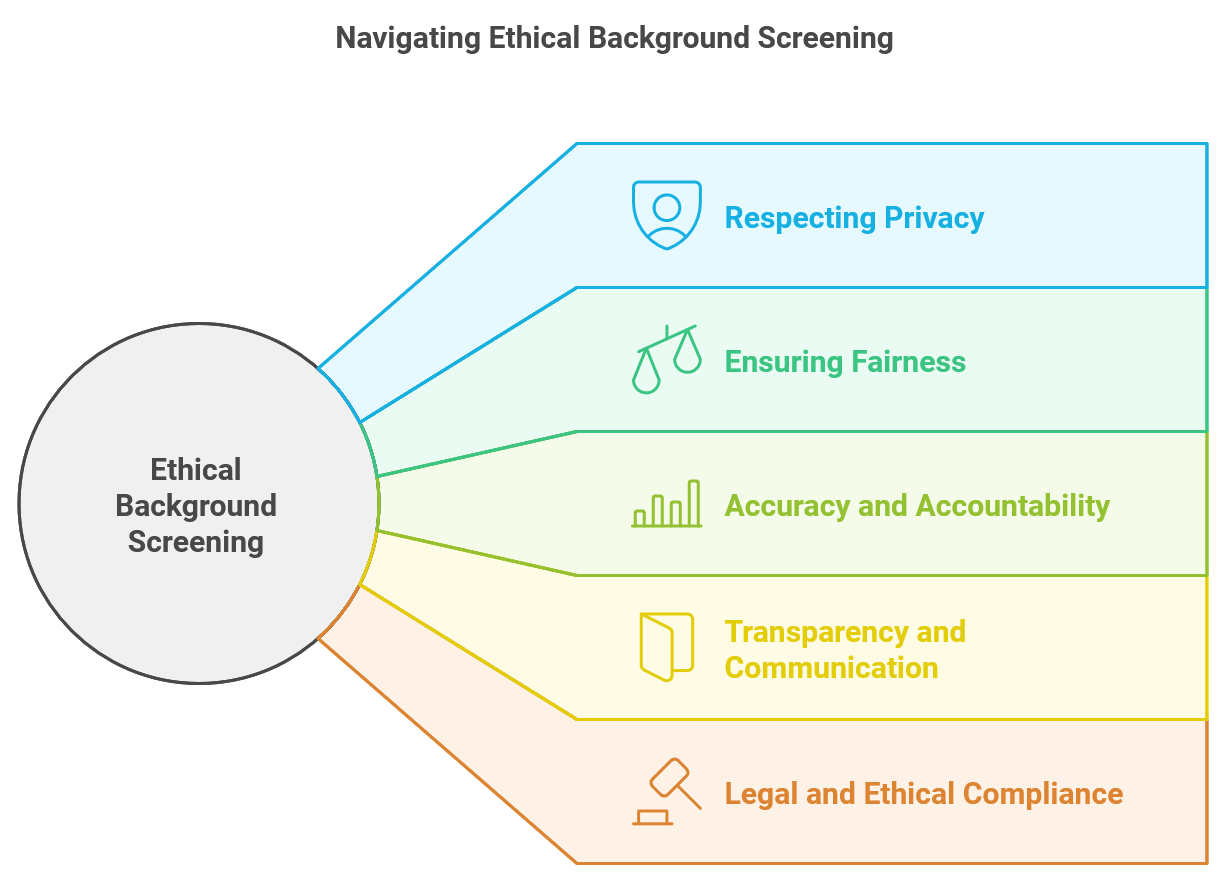Data-Driven Risk Management: The Future is Here
The era of reactive risk management waiting for a crisis to occur before formulating a response is officially over.
Read MoreJuly 26, 2024
Background screening has become a standard practice for employers seeking to verify the qualifications, integrity, and suitability of potential employees. While these checks are crucial for maintaining workplace safety and security, they also raise significant ethical questions. Balancing the need for thorough screening with respect for individual privacy and fairness is a delicate task. This article explores the ethical considerations surrounding background screening and offers guidance on how employers can conduct these checks responsibly.

Privacy Concerns: One of the primary ethical concerns in background screening is the potential invasion of privacy. Employers must strike a balance between obtaining necessary information and respecting the privacy rights of candidates. This means only collecting information that is directly relevant to the job in question and avoiding intrusive inquiries into personal matters that have no bearing on job performance.
Informed Consent: Ethically conducted background checks require informed consent from candidates. Employers should be transparent about what information will be collected, how it will be used, and who will have access to it. Candidates should have the opportunity to review and consent to these checks, ensuring they are aware of their rights and the scope of the screening.
Avoiding Discrimination: Background screening processes must be designed to prevent discrimination. This involves applying the same criteria and procedures to all candidates, regardless of race, gender, age, religion, or other protected characteristics. Employers should be mindful of potential biases in their screening methods and strive to ensure that all candidates are treated fairly and equally.
Relevance and Proportionality: The principle of relevance dictates that only information pertinent to the job should be considered in a background check. For example, a minor, non-violent offense from many years ago may not be relevant to a candidate’s ability to perform a role in customer service. Employers must ensure that the information they gather is directly related to the responsibilities of the position and is proportionate to the level of risk associated with the job.
Ensuring Data Accuracy: Inaccurate information can unfairly impact a candidate's employment prospects. It is the employer’s responsibility to verify the accuracy of the data collected during background screening. This involves cross-checking information from reliable sources and allowing candidates the opportunity to correct any inaccuracies or provide context for certain findings.
Handling False Positives: Background checks can sometimes produce false positives, where a candidate is mistakenly linked to adverse information. Employers should have procedures in place to address and rectify such situations. This includes notifying the candidate of the findings, giving them the chance to dispute the information, and conducting a thorough review before making any employment decisions.
Clear Communication: Transparent communication is essential in the background screening process. Candidates should be informed at each stage of the screening, from initial consent to the final results. This openness helps build trust and ensures that candidates understand the process and its implications.
Providing Feedback: When a candidate is rejected based on background screening results, it is ethical to provide them with feedback and the reasons for the decision. This allows candidates to understand any areas of concern and, if possible, address these issues in the future. Providing feedback also demonstrates respect and fairness in the hiring process.
Adhering to Legal Standards: Employers must comply with all relevant laws and regulations governing background screening. This includes data protection laws, anti-discrimination laws, and specific regulations related to employment practices. Ethical screening practices go beyond mere legal compliance, striving to uphold the highest standards of fairness and integrity.
Regular Review and Improvement: The landscape of employment and technology is constantly evolving, and so should background screening practices. Employers should regularly review and update their screening procedures to ensure they remain ethical and effective. This involves staying informed about changes in laws and best practices, as well as seeking feedback from candidates and employees to improve the process.

Security Consulting
The era of reactive risk management waiting for a crisis to occur before formulating a response is officially over.
Read More
Security Consulting
For businesses in Nigeria and across the globe, understanding and mitigating physical risks has never been more critical.
Read More
Protective Intelligence
Should ordinary citizens take up arms to defend themselves? On the surface, it seems a simple, visceral answer to a complex problem.
Read More